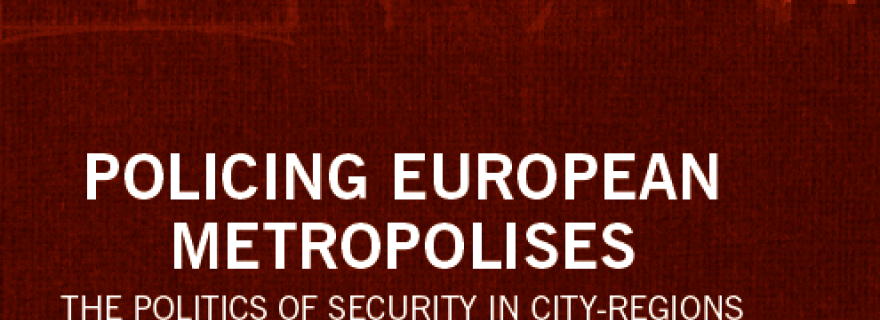New publication “Policing European Metropolises. The Politics of Security in City-Regions” out now!
Metropolises, or ‘city-regions’, have become a key focus of comparative social research, as they form the key nodal points or ‘command centres’ in more networked and globally integrated social relations.
In late modern Western society national governing programmes are often subordinated to, and increasingly oriented around, the interests of powerful city-regions. Metropolises are the key nodal points or ‘command centres’ in more networked and globally integrated social relations. The title of the book refers to the need for an new innovative level of political and strategic policing, namely on the level on city-regions.
A key implication of this fact is the need for comparative research capable of understanding the role of metropolitan authorities in driving policing change. The question is whether this role enables a greater diversity (divergence) in policing policies, generating opportunities for comparing and contrasting rival approaches and their outcomes, or whether the involvement of metropolitan authorities in transnational networks creates tendencies toward policy convergence (Pollitt, 2001).
The interest in divergence has been stimulated by arguments about the particular importance of metropolises in the constitution of ‘global’ security threats and policing responses. These arguments reflect wider debates in social science about ‘glocalisation’ or the idea that, as a consequence of the greater mobility of capital, labour, goods and services (the Four Freedoms) across national borders, it is powerful metropolises or, in the argot of public policy, ‘city-regions’, that become a key focus of comparative social research.
The publication offers a state of the art on ‘processes of convergence and divergence in the policy formulation of policing strategies for 22 European metropolises’. In the different metropolises, policy plans were analysed, key interviews with governance stakeholders were held and focus groups were organised, aiming to identify the political agency and discretion available to metropolises to define and accomplish their own policing agendas and to question what the role of social science can be in constituting such agendas.
The book develops a sociology of urban policing in Europe addressing major challenges of translation in cross-cultural analysis. As these -linguistic, conceptual and disciplinary- problems of translation necessitate a collaborative approach to cross-national and inter-disciplinary research, the editors brought together experts from across the continent offering a unique methodology for comparing city-regions.
"This path-breaking project documents how local policing policies play out across 22 cities in nine nations. While powerful national and global forces push some metropolitan areas toward standardized responses to common problems, in other places local political and social realities have spawned unique approaches to the issues of terrorism, fiscal austerity, mass migration, emergent nationalism, youth delinquency and adult crime. In its scope and rigor, there has never been anything to match this powerful analysis."
Wesley G. Skogan, Professor of Political Science and Faculty Fellow of the Institute for Policy Research, Northwestern University, USA
“Policing European Metropolises is a significant intellectual and grounded theoretical contribution to understanding such complexities and expanding theories of Metropolitan Police Governance. A must read in a globalized world."
Jack R. Greene, Professor in the School of Criminology and Criminal Justice, Northeastern University, USA
Order? Routledge


